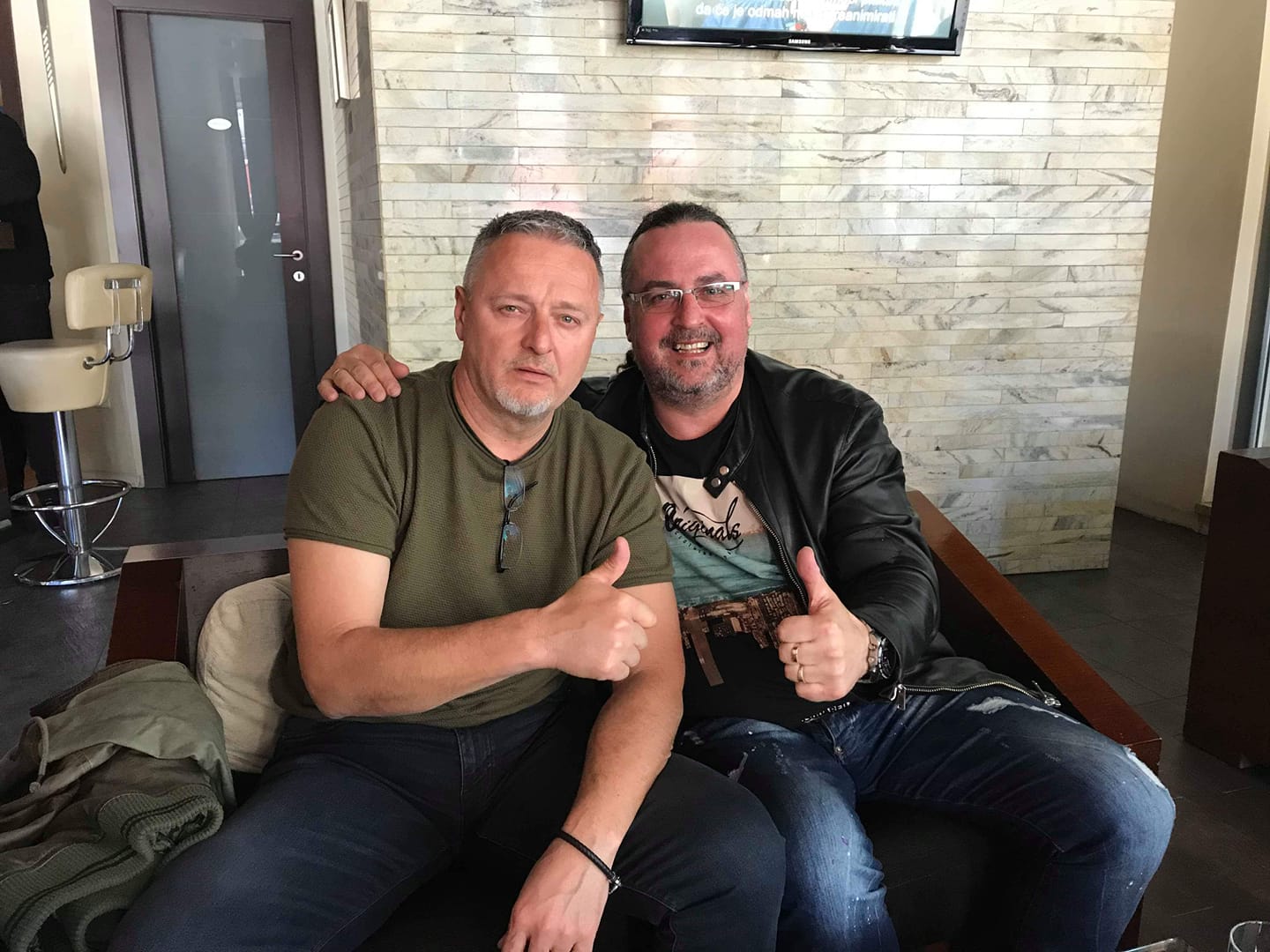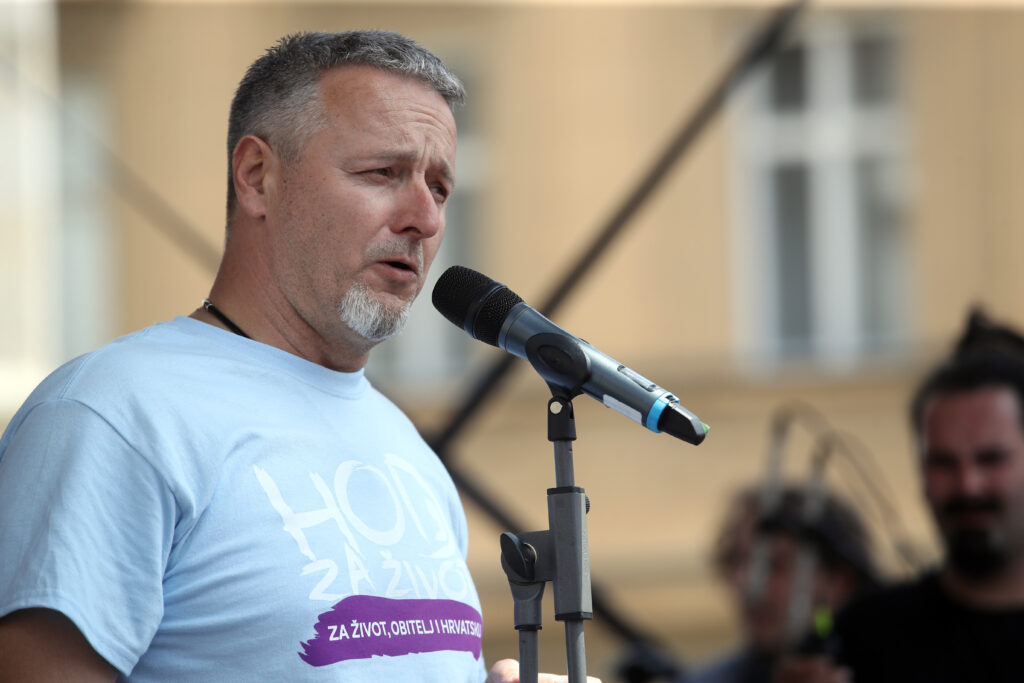Authorities banned the Croatian singer Marko Perković Thompson’s concert, and a series of human rights breaches followed. The case is now in Strasbourg. “The same court was the defendant and the court ruling in the case, which violates the appearance of impartiality, and the equality of arms,” explains a law professor. “Violations are more than obvious.”
Milan Trol is a 50-year old organiser of small music concerts. In May 2017, in a private music hall in Maribor, Slovenia, he planned his first large concert. It was a concert by a famous Croatian musician Marko Perković Thompson. The police approved the event and then changed their mind. Two days before the concert date, the authorities banned it for safety reasons. In particular, the decision stated that 28 tickets were sold abroad, mainly in Austria. It was clear from the start that 28 tickets sold in Austria were sham reasons and that the authorities’ decision was illegal and political.
Trol appealed and asked the court to allow the concert. The European Court of Human Rights had ruled in Baczkowski v Poland judgment that the courts should decide on his appeal before the planned event day. Despite numerous requests, the court ruled three years later. It ruled in Trol’s favor. However, in these years, Trol had returned the money to the ticket buyers, cover all promotion costs, and almost went bankrupt.
Slovenian courts refused to hold hearings, but the ECHR found Trol’s cases “inadmissible”
Mr. Trol sued to get expenses and costs covered. Trol filed a lawsuit claiming that the court violated his human rights and asked for an oral and public trial and to examine witnesses. The court asked him to file separate lawsuits for separate violations, he claimed. He followed the request and filed four lawsuits. He asked for public hearings in each of them, and in all of them, the court refused to hold hearings, refused to allow him to examine witnesses, and ruled against him.

Trol filed three applications to the European Court of Human Rights. Not holding a hearing or allowing a party to examine witnesses is a frequent human rights violation in Slovenia, despite the ECHR judgments Mirovni institut v. Slovenia and Cimpersek v Slovenia in which the ECtHR held that the applicants had a right to oral hearings. The Council of Europe court rejected all three of Trol’s applications as inadmissible, which is hard to understand. Inadmissibility decisions contained no reasoning, which was contrary to the ECtHR’s promise made in 2017 that decisions would become reasoned.
The same entity was a party and the court deciding the case
The fourth set of proceedings was shocking from the fair-trial perspective. When Trol received the defendant’s response, he noticed that it was signed by the president of the same court that was adjudicating the case. Trol asked the case to be transferred to a different court for the sake of impartiality and the appearance of impartiality under Article 6 ECHR. The court did not leave the case to a different court, and without holding a hearing, ruled in favor of the defendant, who was the same court’s president Janja Šegan.
When he went to the court building to consult the case file, he noticed that the court had not sent him a submission that the defendant party – the court’s president – submitted to the court. Trol argued that Article 6 ECHR and the appearance of impartiality had been breached. The Supreme Court and the Constitutional court both saw no violation when the court – which was at the same time the defendant party – did not send its submissions to the plaintiff to respond. According to the courts, there was no violation in not holding a hearing or in the same court acting as a defendant and the adjudicating. Constitutional judges Rok Čeferin, Špelca Mežnar, and Matej Accetto rejected Trol’s appeals
The president of the court, which ruled in the case, signed the defendant party’s submissions
In February 2021, Trol turned to the Strasbourg Court for the fourth time. “My rights under Articles 6 and 13 were violated by the court not allowing a public and oral hearing and not enabling the applicant to examine witnesses, which I had requested; by the president of the court, which ruled in the case, signing the defendant party’s submissions; the same court is the defendant and the court ruling in the case; the same person Jasna Šegan is the party and the president of the court deciding the case, the same legal entity – the Administrative Court – was a party and the court deciding the case. This is a violation of the impartiality, the appearance of impartiality, and the equal arms principle” explains Trol.
“The court should have transferred or asked the Supreme Court to transfer the case to a different court, and by not sending the defendant’s (court’s) submissions to the applicant for review and response, Slovenia violated fair trial, equal arms principle, and impartiality,” says his attorney Igor Marinšek.
The same person Jasna Šegan is the party and the president of the court deciding the case. The same legal entity – the Administrative Court – was a party and the court deciding the case. This is a violation of the impartiality, the appearance of impartiality, and the equal arms principle (Article 6 ECHR), Marinšek explained.
“The same court was the defendant and the court ruling in the case, which violates impartiality, and the appearance of impartiality, and the equality of arms principle,” explained a law professor that prefers to stay unnamed, for obvious reasons.
ECHR: When events are banned, courts have to rule quickly
Trol succeeded in getting the ban lifted, but three years after he planned the concert, the ban lift was way too late. As the result of three years delay, it became impossible to organize the concert: there is a Covid pandemic, there are restrictions that do not allow the concert in 2020, the music became outdated, the public lost interest because people do not listen to the same music they listened three years ago.
Under the ECHR case law (Baczkowski and Others v Poland, 1543/06, § 74, § 81-84), the organiser of a banned event should have at his disposal a procedure that would allow him to obtain a final decision prior to the date of the planned event. According to the Baczkowski judgment, timing is “crucial”, and in cases of banned events, post-hoc remedies are not effective. “Slovenia violated the applicant’s rights because the Ministry and courts refused to decide before the scheduled date of the event. Slovenia made it impossible for the applicant to obtain any compensation or refund of costs associated with the banned event or court proceedings,” Trol claims.
“Mr. Trol’s rights to freedom of expression and assembly were violated by the authorities’ concert ban,” says attorney Marinšek.
Trol: We trust in the Strasbourg court
The European Court of Human Rights rejected three of Trol’s applications despite obvious violations. He still has, however, trust in the Court. “We trust that the Court will communicate my case soon. The Court needs to send a message to Slovenian judges to follow the European Convention on Human Rights. I may never be able to hold a concert, but Europe’s top court needs to set standards on what rights one has when their events get banned,” is Trol optimistic. “It is true, constitutional judge Čeferin is the ECHR judge Bošnjak’s former employer, but I am confident in judge Marko Bošnjak’s integrity”, Trol says and waits a bit. Then he concludes by, “With so many legal issues, at least I deserve a reasoned opinion.”


